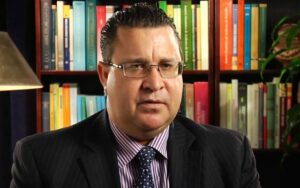World Bank believes its support to Ghana would help end poverty

Before the outbreak of the COVID-19 pandemic, many Africans were struggling to get out of poverty. The pandemic has however, worsened conditions for citizens already living in poverty.
The Economic Commission for Africa (ECA) has indicated that some 514 million Africans are already falling below the poverty line due to the effects of the pandemic.
Ahead of the outbreak, the Sustainable Development Goals were being pursued, but the Africa Sustainable Development Report of the ECA, says the implementations of the SDGs and Agenda 2063 faced several challenges before the outbreak of the COVID19 pandemic.
During the End Poverty Day event organized by the World Bank, the Ghana Country Director, Pierre Laporte, expressed concern for the fact that this year, there won’t be the celebration of progress, as has been the case in previous years.
“We are not celebrating progress, as has been the case in previous years, primarily because of the global setback caused by the COVID-19 pandemic – Global extreme poverty increased in 2020 for the first time in over 20 years pushing around 100 million people into extreme poverty through job loss, rising prices, and disruptions in services such as education and health care,” he said.
He indicated that the Bank has committed a total of $435.8 million to support the Ghana government’s COVID-19 health response along five strategic pillars: (i) stop importation of COVID-19 cases; (ii) contain the spread of the virus; (iii) provide adequate care for the sick; (iv) limit the impact of the virus on social and economic life; and (v) inspire the expansion of our domestic capability and deepen our self-reliance.
He noted that access to safe and effective COVID-19 vaccines is a vital tool to fight the COVID-19 pandemic and strengthen global economic recovery, but cited the global supply shortage in COVID-19 vaccines which has slowed down vaccine deployment in low-income countries.
“For this reason, the World Bank Group, IMF, WHO, and WTO have formed a task force to accelerate access to COVID-19 vaccines leveraging multilateral finance and trade solutions. We are calling for urgent international support to achieve more equitable access to vaccines and help end the pandemic. We are urging countries with excess vaccine supplies to release them, quickly and transparently, to developing countries. But, to complement this, developing countries need to quickly put in place effective vaccine procurement and distribution systems,” he said.
According to Laporte the pandemic will not end until everyone has access to vaccines.
“In Ghana the World Bank has allocated a significant part of the financing committed (around $150m) for vaccine acquisition including 16.9 million doses of Johnson & Johnson COVID-19 vaccines through the African Vaccine Acquisition Task Team (AVATT) to achieve the Africa Union (AU)’s and WHO’s target of vaccinating 70 per cent of the total population by mid-2022,” he said.
He said economic recovery has not even begun for the poorest 40 per cent, who are at risk of losing a decade of development.
“Three challenges that could greatly limit their economic recovery are: climate change, debt, and inequality. Our focus is on helping countries, including Ghana, build a green, resilient, and inclusive recovery through economic growth that is: Green; To achieve this objective, we are integrating climate into our country diagnostics and country strategies and support countries to meet the principles/goals of the Paris commitments. Resilient; We are stepping up our efforts to strengthen resilience including building resilient infrastructure, putting in place emergency response protocols, disaster risk financing, and risk transfer solutions. Inclusive; The World Bank is providing emergency support through social protection projects to enhance safety nets for poor and vulnerable people, particularly those living in conflict and fragility situations,” he said.
By 2018, the overall poverty level in Ghana declined from 24.2 per cent in 2012/13 to 23.4 per cent in 2016/17.
By Emmanuel K. Dogbevi
Copyright ©2021 by NewsBridge Africa
All rights reserved. This article or any portion thereof may not be reproduced or used in any manner whatsoever without the express written permission of the publisher except for the use of brief quotations in reviews.
